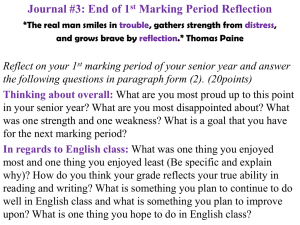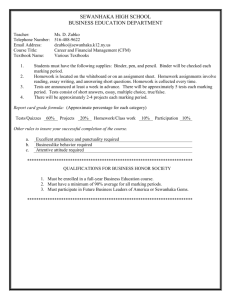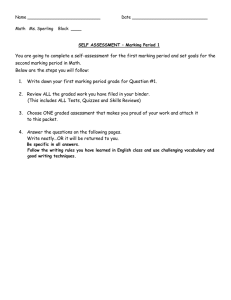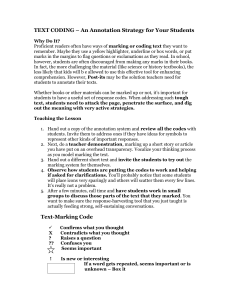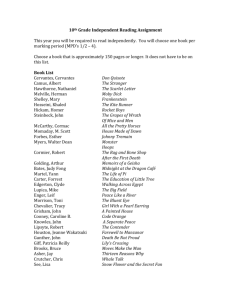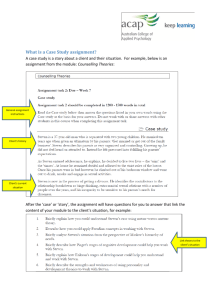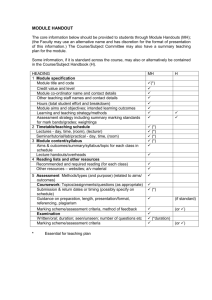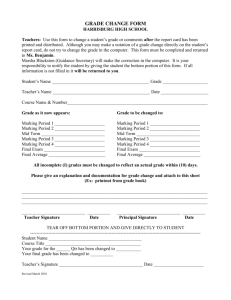Top 10 Tips for Diagnostic Marking:
advertisement
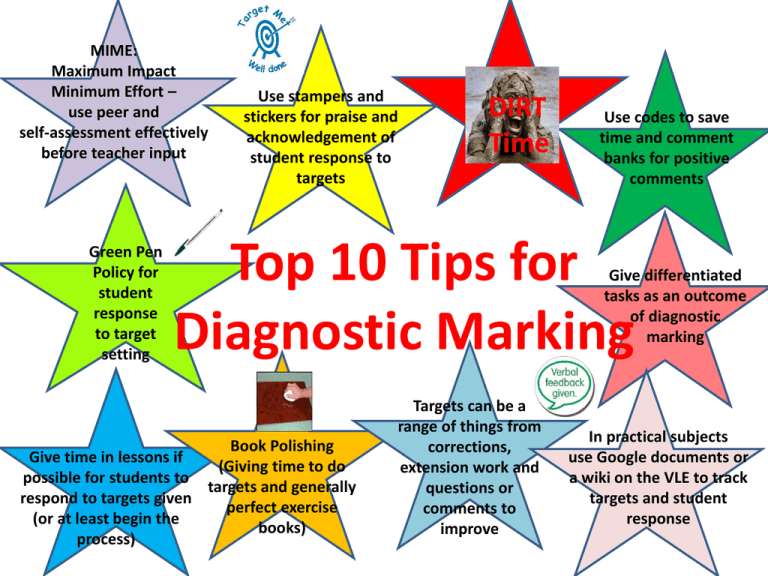
MIME: Maximum Impact Minimum Effort – use peer and self-assessment effectively before teacher input Green Pen Policy for student response to target setting Use stampers and stickers for praise and acknowledgement of student response to targets DIRT Time Use codes to save time and comment banks for positive comments Top 10 Tips for Diagnostic Marking Book Polishing Give time in lessons if (Giving time to do possible for students to targets and generally respond to targets given perfect exercise (or at least begin the books) process) Give differentiated tasks as an outcome of diagnostic marking Targets can be a range of things from corrections, extension work and questions or comments to improve In practical subjects use Google documents or a wiki on the VLE to track targets and student response Owen’s Top 10 Diagnostic Marking Tips: • Getting students into the routine is essential. • Keep Departmental samples scanned in for good examples to refer to. • Make sure that feedback has been recognised and make the marking as personal as possible. • Use Exit passes more – thinking smarter. • Consistency across the department is key. • Set follow-on differentiated tasks online. • Use one word response to targets – more likely to do it constantly! • Leave space for students to respond to – easier for teachers and students to refer back to. • Get students to highlight their best and worst part before handing in. • Use Bloom’s to set targets.

